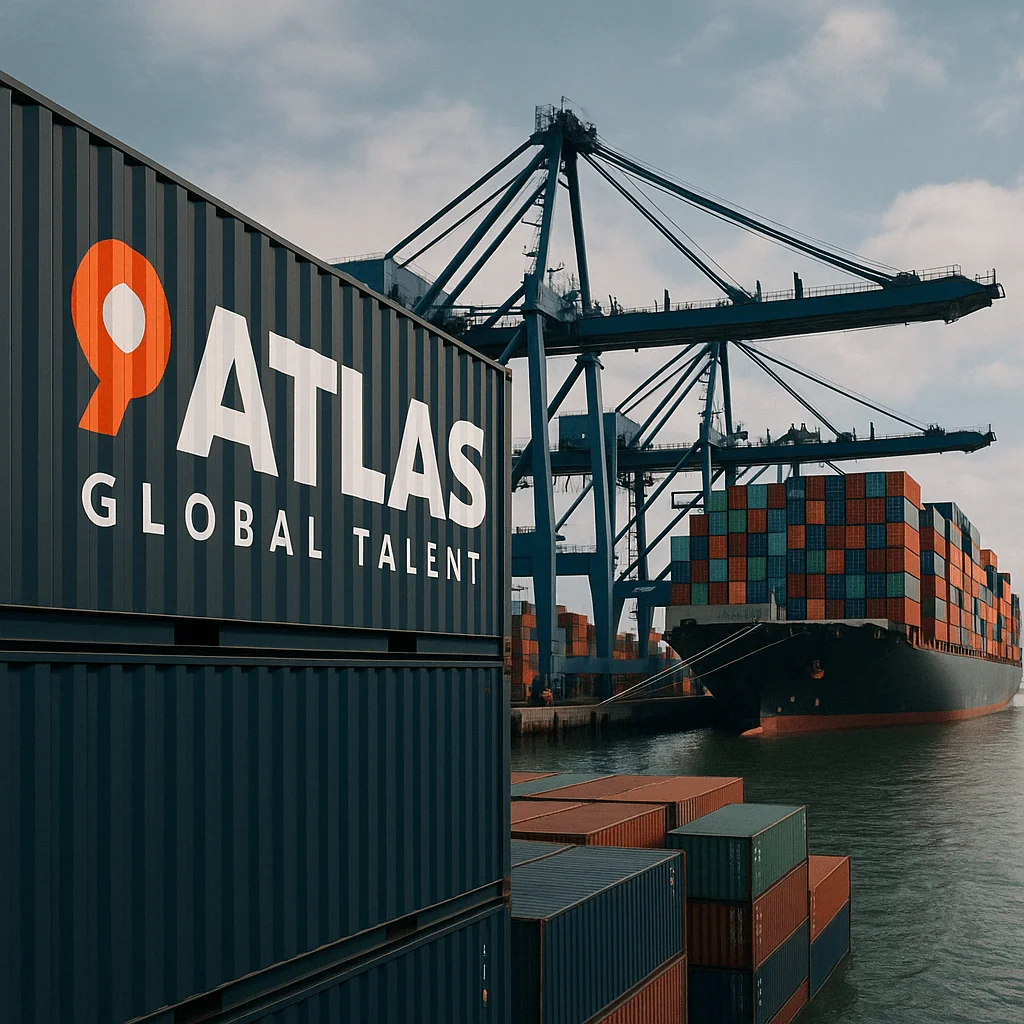Global Supply Chain Struggles and How Businesses Are Adapting
Wednesday, April 16, 2025

Other News
-
-
The Rise of Road Freight in Asia and What It Means for Recruitment
Wednesday, April 16, 2025
-
Air Freight in the USA and What It Means for Hiring
Wednesday, April 16, 2025
-
Growth in Freight Demand and Hiring Across Mexico City’s Expanding Logistics Sector
Wednesday, April 16, 2025
-
Montreal Freight Activity and the Demand for Skilled Sales Professionals
Wednesday, April 16, 2025
-
Freight Movement and Hiring Trends in the Atlanta Logistics Market
Wednesday, April 16, 2025
-
How to Recruit Top Logistics Sales Professionals in Los Angeles
Wednesday, April 16, 2025
-
Recruiting Logistics Sales Professionals in Chicago’s Competitive Market
Wednesday, April 16, 2025
-
Recruitment Struggles in the USA as Budgets Tighten and Confidence Wavers
Wednesday, April 16, 2025
-
UK and European Road Freight Trends and Challenges
Wednesday, April 16, 2025
-
Logistics Business Development Recruitment in New York
Wednesday, April 16, 2025
-
Trump Tariff Causing Global Freight Disruptions
Wednesday, April 16, 2025
-
Global Ocean Freight and Supply Chain Pressures
Wednesday, April 16, 2025
-
Transpacific Cargo Movements from the USA
Wednesday, April 16, 2025
-
Logistics Sales Recruitment in Florida
Wednesday, April 16, 2025
-
Strategies for a Changing Workforce
Wednesday, April 16, 2025
-
Why Contract Recruitment Is Gaining Ground in Logistics and Freight
Sunday, April 13, 2025
-
The Real Cost of a Bad Logistics Sales Hire
Friday, April 11, 2025
-
Why Freight Operations Managers Are in High Demand Globally
Tuesday, March 4, 2025
Tariffs and Trade Tensions
Global supply chains have become increasingly fragile in the face of unpredictable trade policies. With the U.S. imposing new tariffs on goods from several major markets, including China, many companies have been forced to rethink how and where they source their products. The extra costs brought on by these tariffs are squeezing margins and forcing some manufacturers to pass higher prices on to consumers.
As a result, businesses are diversifying their sourcing strategies. Instead of relying on a single country for materials or finished goods, more companies are working with suppliers in multiple regions. This shift spreads out the risk, helping them maintain consistent production even when one region becomes cost-prohibitive or politically unstable.
While this diversification is a smart long-term move, it doesn’t come without growing pains. New suppliers mean new logistics partners, longer onboarding times, and different compliance requirements. It’s a balancing act between protecting operations and managing the complexities that come with a broader global footprint.
Climate Challenges and Transport Disruptions
Weather-related disruptions are having a greater impact than ever before on global shipping. Floods, hurricanes, and droughts are hitting key ports and inland freight corridors more frequently, leading to port closures, shipment delays, and rerouted vessels. For example, low water levels have restricted traffic through the Panama Canal, delaying cargo and raising rates on alternative routes.
The effects of these events ripple far beyond the immediate geography. When a port shuts down or a canal becomes bottlenecked, freight forwarders are left scrambling to find space, carriers raise prices, and retailers face unexpected delays on shelves. This new climate reality is pushing companies to make environmental risk part of their supply chain planning.
To cope, businesses are rerouting cargo, moving away from over-reliance on any one port, and increasing their use of warehousing closer to key distribution centres. They’re also investing in real-time visibility tools to stay ahead of disruptions, so they can reroute or rebook freight before it hits a bottleneck.
Labour Shortages and Resource Gaps
Another challenge plaguing supply chains is the shortage of skilled labour in key logistics and manufacturing roles. Warehousing, port operations, and over-the-road transport are all seeing gaps in staffing, causing delays, increased costs, and reduced capacity for handling growing demand.
Post-pandemic recovery efforts have only highlighted how dependent global trade is on its people. From forklift drivers and customs clerks to freight coordinators and international buyers, the demand for trained, reliable workers has never been higher. When these roles remain unfilled, shipments slow down, quality slips, and flexibility disappears from the supply chain.
To fix this, some companies are doubling down on automation—but that solution isn’t always quick or affordable. Others are turning to recruitment partners to help them tap into new talent pools, expand their geographic reach, and offer competitive packages that draw in skilled professionals from an increasingly tight labour market.
Building Supply Chain Resilience
With all of these pressures mounting, resilience is no longer a luxury—it’s a necessity. Companies are no longer asking “what happens if something goes wrong?” They’re asking “what happens when it does?” That shift in mindset is leading to real operational changes, from dual-sourcing strategies to reshoring production and investing in technology that allows for faster decision-making.
Stronger communication across the supply chain is also playing a role. Businesses are working more closely with their logistics providers, customs brokers, and suppliers to create clearer expectations and improve responsiveness. Sharing data and insights is making a measurable difference in reducing downtime and improving service continuity.
As supply chain challenges continue to evolve, so does the need for capable, adaptable teams that can keep goods moving no matter what the world throws at them. It’s not just about surviving the next disruption—it’s about building systems and teams that can keep going through it.
At Atlas Global Talent, we support logistics and freight forwarding companies in building high-performing teams that keep supply chains moving. Whether you're adjusting to new regulations, facing labour shortages, or rethinking your international sourcing, we help you find the talent you need to stay ahead. Our reach spans the UK, Europe, USA, Canada, LATAM and Asia—so wherever you're operating, we can connect you with professionals who understand the job and get it done.

